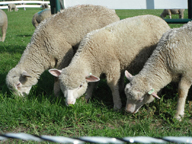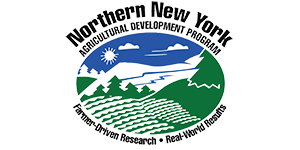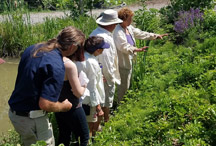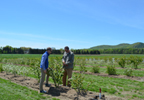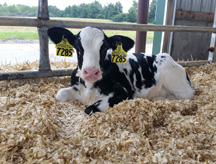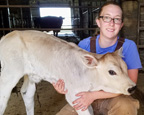
Chazy, N.Y.: March 3, 2020. Winters in Northern New York can be harsh. One farm has already adjusted its winter calf nutrition program based on participating in research funded by the farmer-driven Northern New York Agricultural Development Program (NNYADP) and conducted by a Miner Institute research team. The complete project report is posted on the NNYADP website at www.nnyagdev.org under About/Projects.
This regionally-focused project collected and analyzed data related to calf feeding and environmental conditions in different housing systems on Northern NY dairy farms in winter. The data has enhanced understanding of their impact on calf energy needs, growth, health, and farm economics.
Project leader Sarah Morrison, Ph.D., seen in photo at left, a research scientist with Miner Institute, Chazy, N.Y., noted, “Young dairy calves have limited body fat reserves and only modest insulation from their hair coat. For this Northern New York Agricultural Development Program project, we evaluated how winter calf feeding programs under different housing systems impact the substantial energy needs, growth, and health of dairy calves under Northern New York climatic conditions.”
The results of this NNYADP project have already influenced one farm that directly participated in the project to enhance its calf management practices and interest in the project is widespread.
“This project shows important considerations from a milk feeding standpoint for calves during the Northern New York winter season, and it has prompted great interest from the agricultural community in learning how they can manage winter season challenges related to achieving optimal calf health on their farms,” said Morrison.
Morrison is now sharing the NNYADP winter calf feeding project results with farmers across Northern New York.
Funding for the Northern New York Agricultural Development Program is supported by the New York State Legislature and administered by the New York State Department of Agriculture and Markets.
Read the full NNYADP winter dairy calf feeding project report:
Winter Calf Feeding Project Results: The Effect of Increasing Total Amount of Nutrients Supplied through Milk or Milk Replacer on Calf Growth & Health in Multiple Housing Systems during Winter Months in NNY

